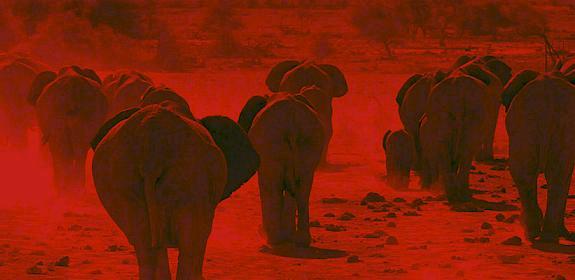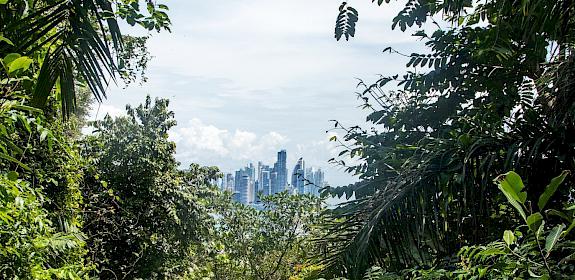World Wildlife Day Empowering Viet Nam’s Youth to Protect Wildlife
Hanoi, Viet Nam, 3rd March 2017—In recognition of World Wildlife Day today, members of the conservation community in Viet Nam are encouraging young Vietnamese to be part of the solution and “speak up” for the protection of endangered wildlife species.
Each year on March 3, World Wildlife Day aims to celebrate and raise awareness of the world’s wild animals and plants. This year’s theme “Listen to the Young Voices” is encouraging youth around the world to rally together to address ongoing major threats to wildlife, including illicit trafficking, over-exploitation and habitat loss.
“Change must come from within, and right now there is an important window of opportunity for young people to make a difference for Viet Nam’s wildlife,” said a spokesperson from a group of 14 organizations working in Viet Nam to protect wildlife and combat wildlife crime.
The group comprises embassies, international organizations, and local and international non-governmental organizations, including Animals Asia, British Embassy in Hanoi, CHANGE, Education for Nature-Vietnam (ENV), Freeland, GIZ, Indo-Myanmar Conservation, Save Vietnam’s Wildlife, TRAFFIC, United Nations Office on Drugs and Crime, U.S. Embassy in Hanoi, WCS Vietnam, WildAct and WWF-Vietnam.
It is a message that carries particular weight in Viet Nam, where many wildlife species are facing the brink of extinction due to over-exploitation and illegal trade. It is a very real threat already played out with the Javan rhino, which was declared extinct in Viet Nam in 2010; and now many other species including tigers, elephants, and pangolins are not far behind. While Viet Nam has enacted a range of efforts in recent years to improve legislation, strengthen law enforcement, and reduce consumer demand, there is still much more that needs to be done to respond to wildlife crime.
According to the United Nations Population Fund, Viet Nam is currently recording the highest proportion of young people in its history. Young people between the ages of 10 to 24 now represent nearly 40 per cent of the population in Viet Nam, which presents a unique chance in its history for young people to influence and contribute to positive change.
“As the largest demographic group and the future leaders and decision makers of Viet Nam, it is crucial that young people are empowered to act at both local and global levels to protect wildlife,” said a spokesperson of the conservation group.
“By calling for and practicing zero tolerance for wildlife crime—starting with our own behaviour and not purchasing or consuming any products made from endangered species—young people can help to mobilize the change that is urgently needed.”
World Wildlife Day is also a timely opportunity to remember the commitments made at the third international Conference on Illegal Wildlife Trade, which was hosted by the Government of Viet Nam in November 2016. During the conference, Viet Nam and other countries made important commitments to end illegal wildlife trade. It is vital that 2017 is a year of strong and sustained action to close down illegal wildlife markets and reduce consumer demand for illegal wildlife products.
“World Wildlife Day is a reminder to all of us—whether government officials, law enforcement officers or private citizens—that we all need to step up our efforts, before it’s too late,” said the spokesperson.
“Do one thing today” to help protect the world’s wildlife. For further information about World Wildlife Day, visit the website.
Notes:
Animals Asia is devoted to ending the barbaric practice of bear bile farming, improving the welfare of animals in Vietnam and China, promoting compassion and respect for all animals, and working to bring about long-term change through three major programmes: End Bear Bile Farming, Cat and Dog Welfare and Zoos and Safari Parks. For more information, visit Animals Asia.
British Embassy in Hanoi
The British Government partnered with Vietnam at the Hanoi Illegal Wildlife Trade Conference in 2016 and will host the next event in London in 2018.
Center of Hands-on Actions and Networking for Growth and Environment (CHANGE) – Founded in 2013 under VUSTA, CHANGE is an incredibly active environmental non-profit organization based in Ho Chi Minh City. CHANGE promotes and encourages the care and preservation of the environment through education and innovative communications that change habits and inspire community action in Vietnam.
Education for Nature–Vietnam (ENV) was established in 2000 as Vietnam’s first non-governmental organization focused on the conservation of nature and the protection of the environment. ENV combats the illegal wildlife trade and aims to foster greater understanding amongst the Vietnamese public about the need to protect nature and wildlife. ENV employs creative and innovative strategies to influence public attitudes and reduce demand for wildlife trade products. ENV works closely with government partners to strengthen policy and legislation, and directly supports enforcement efforts in the protection of endangered species of regional, national, and global significance. www.envietnam.org / www.thiennhien.org
Freeland is a frontline counter-trafficking organization working for a world that is free of wildlife trafficking and human slavery. Our team of law enforcement, development and communications specialists work alongside partners in Asia, Africa and the Americas to protect the environment and vulnerable people from organized crime and corruption.
As a federal enterprise, the Deutsche Gesellschaft für Internationale Zusammenarbeit (GIZ) GmbH supports the German Government in achieving its objectives in the field of international cooperation for sustainable development
Indo-Myanmar Conservation (IMC) is a UK registered charity that works to prevent the extinction of the Indo-Myanmar Hotspot’s globally threatened wildlife. In Vietnam, the Asian Turtle Program is the principal program of IMC, with a focus on securing priority populations of highly threatened tortoise and freshwater turtle species through research, awareness and enforcement.
Save Vietnam's Wildlife is a national non-profit organisation, committed to "stop the extinction and champion the recovery of threatened species in Vietnam.




